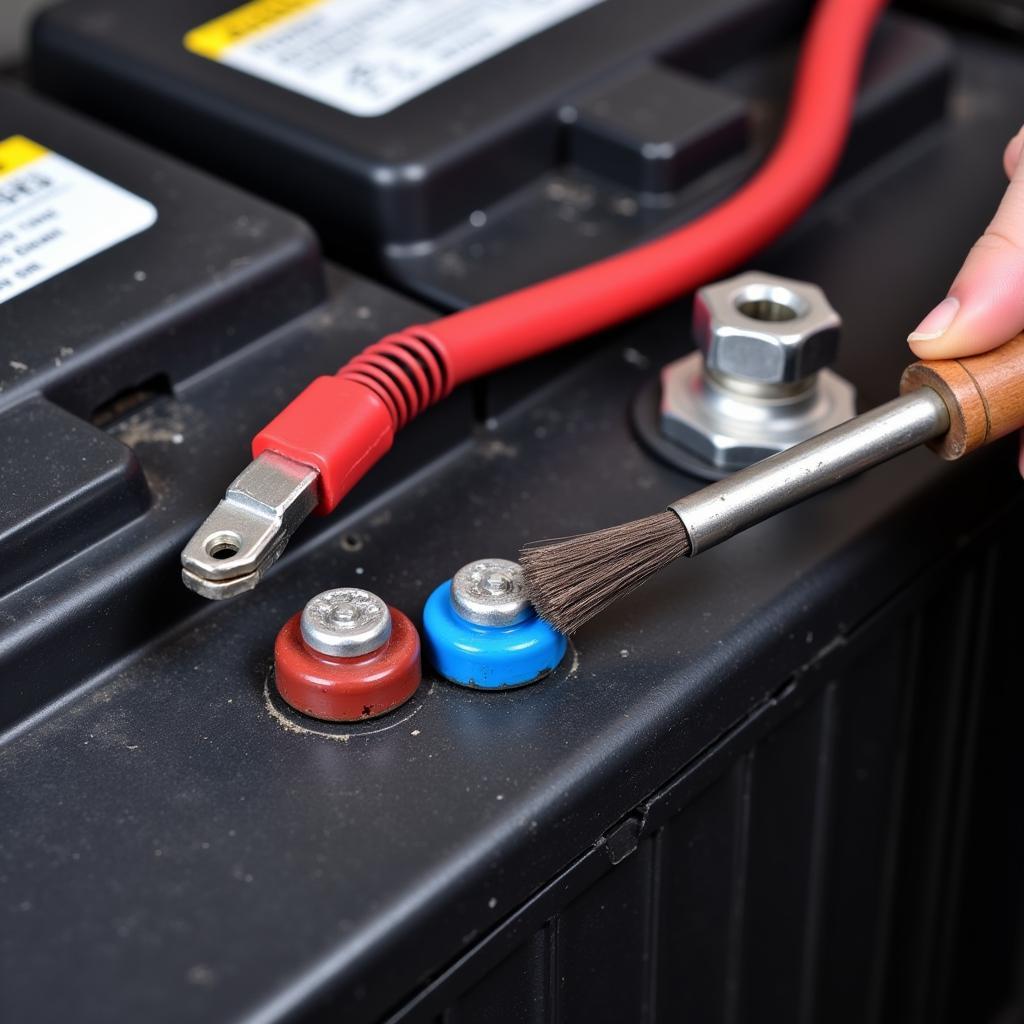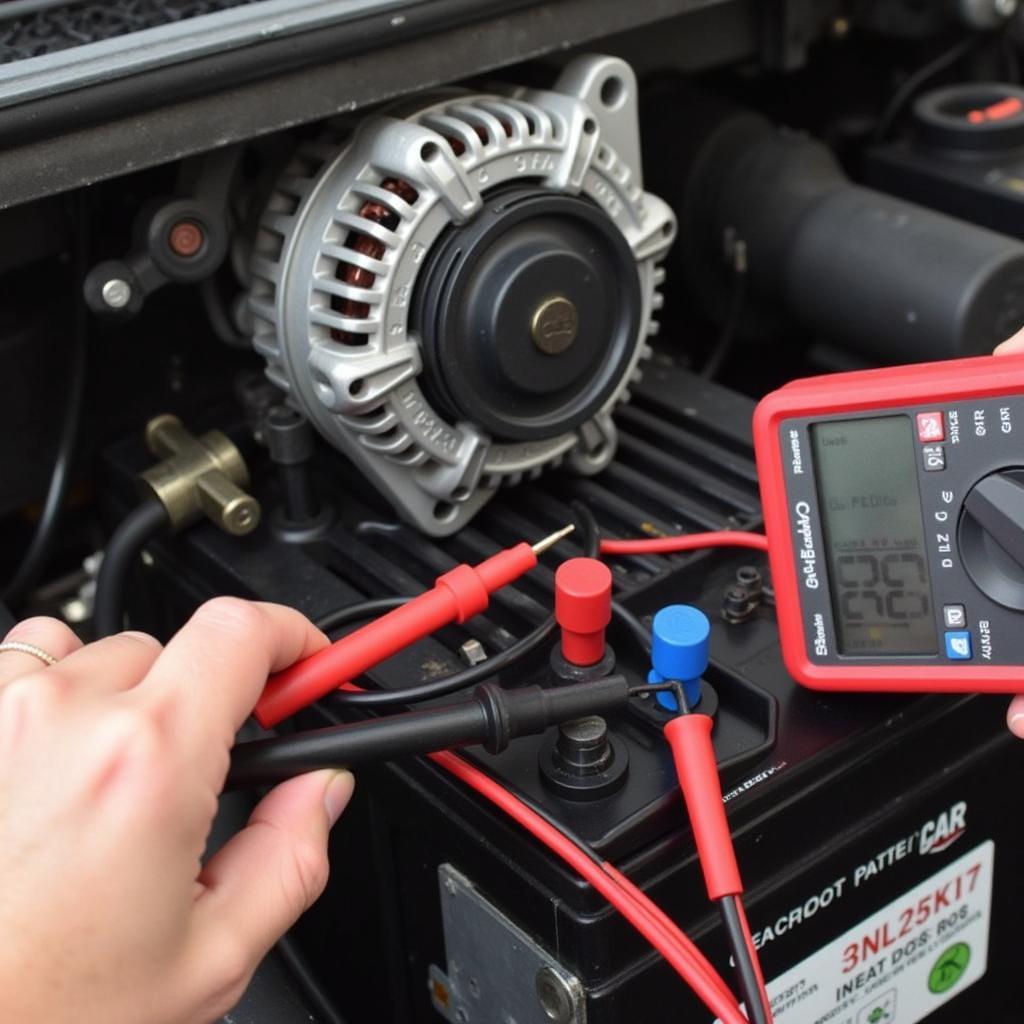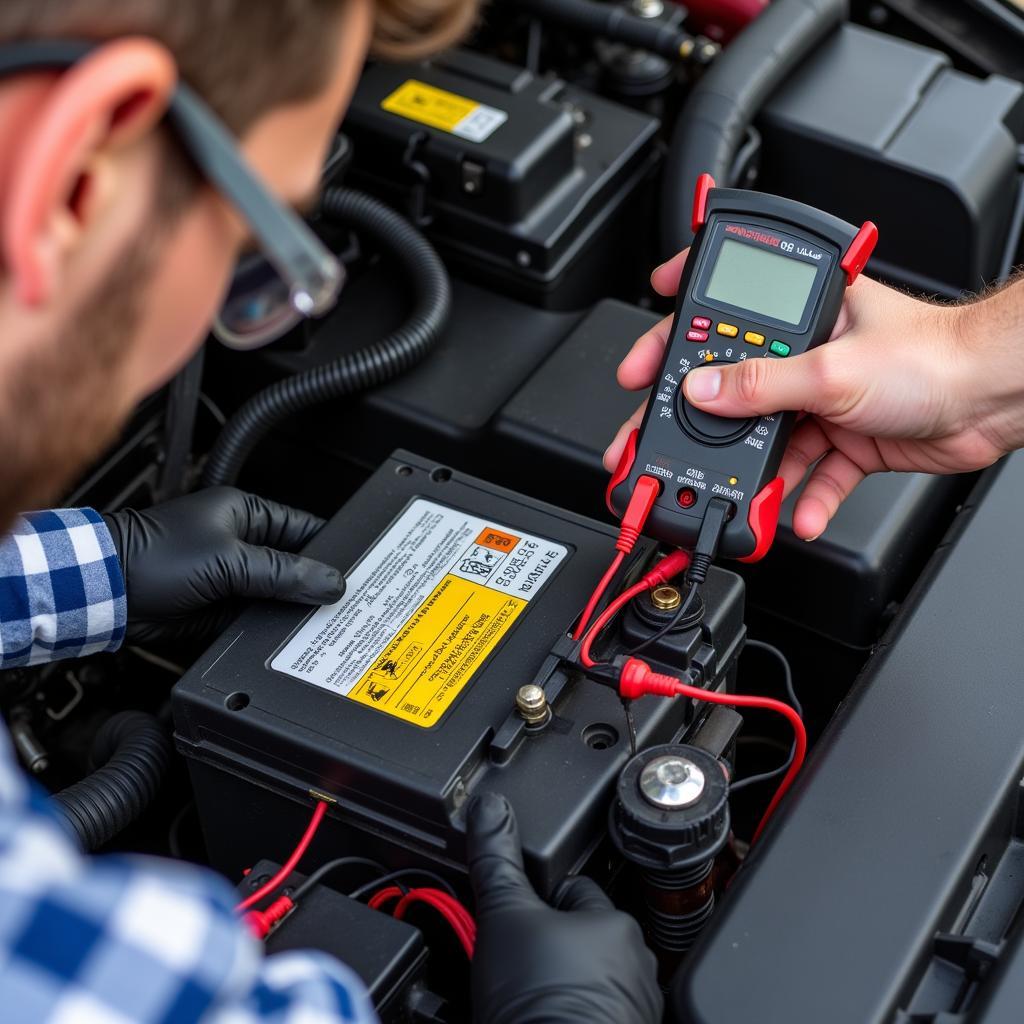You just installed a new battery in your car, but it still won’t start. Frustrating, right? Don’t worry, you’re not alone. This is a surprisingly common problem, and there are a few reasons why your car might be refusing to turn over despite a fresh battery. This comprehensive guide will walk you through the most common culprits and help you get back on the road.
Why a New Battery in Car Still Won’t Start
There are several reasons why your car won’t start even with a new battery. It’s important to systematically check these potential issues to pinpoint the problem. It might not be the battery at all! Sometimes, the issue isn’t the battery itself but something related to the electrical system, the starter, or even the fuel system. Let’s explore the possibilities.
Common Culprits Behind a Car Not Starting
- Faulty Alternator: The alternator recharges the battery while the engine is running. If it’s faulty, it won’t charge the new battery, leaving you stranded. A simple test with a multimeter can confirm this.
- Corroded Battery Terminals: Corrosion can prevent the battery from making proper contact with the car’s electrical system, even if the battery is brand new. Clean the terminals with a wire brush and baking soda solution.
- Bad Starter Motor: The starter motor is responsible for cranking the engine. If it’s malfunctioning, the engine won’t turn over even with a new battery. You might hear a clicking sound when you try to start the car.
- Ignition Switch Problems: The ignition switch sends power to various components, including the starter. A faulty ignition switch can prevent the car from starting.
- Blown Fuses: Check your car’s fuse box for any blown fuses. A blown fuse related to the starting system can prevent the car from starting.
- Fuel Pump Issues: While unlikely with a new battery, it’s possible the fuel pump isn’t delivering fuel to the engine. Listen for the fuel pump’s whirring sound when you turn the key to the “on” position (before starting).
- Security System Malfunction: Sometimes, a car’s anti-theft system can prevent the engine from starting. Try disabling the alarm system or using a different key.
 Checking Battery Connections for Corrosion
Checking Battery Connections for Corrosion
Troubleshooting a Car That Won’t Start With a New Battery
Let’s delve deeper into how to diagnose these issues. This step-by-step guide will help you determine why your new battery in car still won’t start.
- Check Battery Connections: Ensure the positive and negative terminals are securely attached to the battery. Clean any corrosion.
- Test the Alternator: Use a multimeter to check the alternator’s voltage output. It should be around 14 volts when the engine is running.
- Inspect the Starter: Tap the starter motor lightly with a hammer or wrench while someone tries to start the car. If the car starts, the starter is likely the problem. You might find a wiring car radio harness helpful if you need to access the starter.
- Check the Ignition Switch: Try starting the car with a different key. If it works, the original key may have a faulty transponder chip.
- Inspect Fuses: Carefully examine the fuses related to the starting system. Replace any blown fuses.
- Listen for the Fuel Pump: Turn the key to the “on” position (without starting the car) and listen for the fuel pump’s whirring sound. If you don’t hear it, the fuel pump may be faulty.
 Testing Car Alternator With Multimeter
Testing Car Alternator With Multimeter
If you’re looking to upgrade your car’s audio system, you might be interested in learning how to upgrade car radio to bluetooth. Adding Bluetooth connectivity can enhance your driving experience.
“Checking the simplest things first, like battery connections and fuses, can often save you a lot of time and money,” advises Robert Johnson, ASE Certified Master Technician.
Advanced Diagnostic Techniques
If the basic troubleshooting steps don’t reveal the problem, you might need more advanced diagnostics. Code readers can help identify specific issues with the car’s computer system. You may also consider an i think my car battery is dead guide for further assistance.
Using Diagnostic Tools for Car Starting Issues
- Code Readers: These tools can retrieve diagnostic trouble codes (DTCs) from the car’s computer, pointing to specific problems.
- Professional Diagnostics: If you’re still stuck, a qualified mechanic can use advanced diagnostic equipment to pinpoint the issue.
“Modern cars are complex. A professional diagnostic scan can identify issues that are difficult to diagnose with basic tools,” notes Maria Sanchez, Automotive Electrical Engineer. A wireless bluetooth fm transmitter car fm radio adapter can be a handy tool while you troubleshoot these problems. Alternatively, consider a bluetooth car kit fm transmitter wireless radio for a more integrated solution.
Conclusion
A new battery in car still won’t start can be a frustrating experience. However, by systematically checking the potential causes, you can often identify and fix the problem yourself. Remember to check the connections, alternator, starter, ignition switch, fuses, and fuel pump. If you’re still stumped, don’t hesitate to seek professional help.
FAQ
- Can a bad alternator drain a new battery? Yes, a faulty alternator will not recharge the battery, leading to a drained battery even if it’s new.
- How do I clean corroded battery terminals? Use a wire brush and a mixture of baking soda and water to clean the terminals.
- Could it be the starter if I hear a clicking sound? A clicking sound often indicates a faulty starter motor or a low battery (even if new, it could be discharged).
- What if I’ve tried everything and the car still won’t start? It’s time to seek professional assistance from a qualified mechanic.
- How often should I replace my car battery? Car batteries typically last 3-5 years, depending on usage and climate.
- Is it dangerous to jump-start a car? Jump-starting can be dangerous if done incorrectly. Follow the proper procedure and safety precautions.
- Can extreme temperatures affect a car battery? Yes, both extreme heat and cold can shorten a battery’s lifespan and affect its performance.

